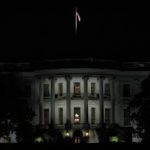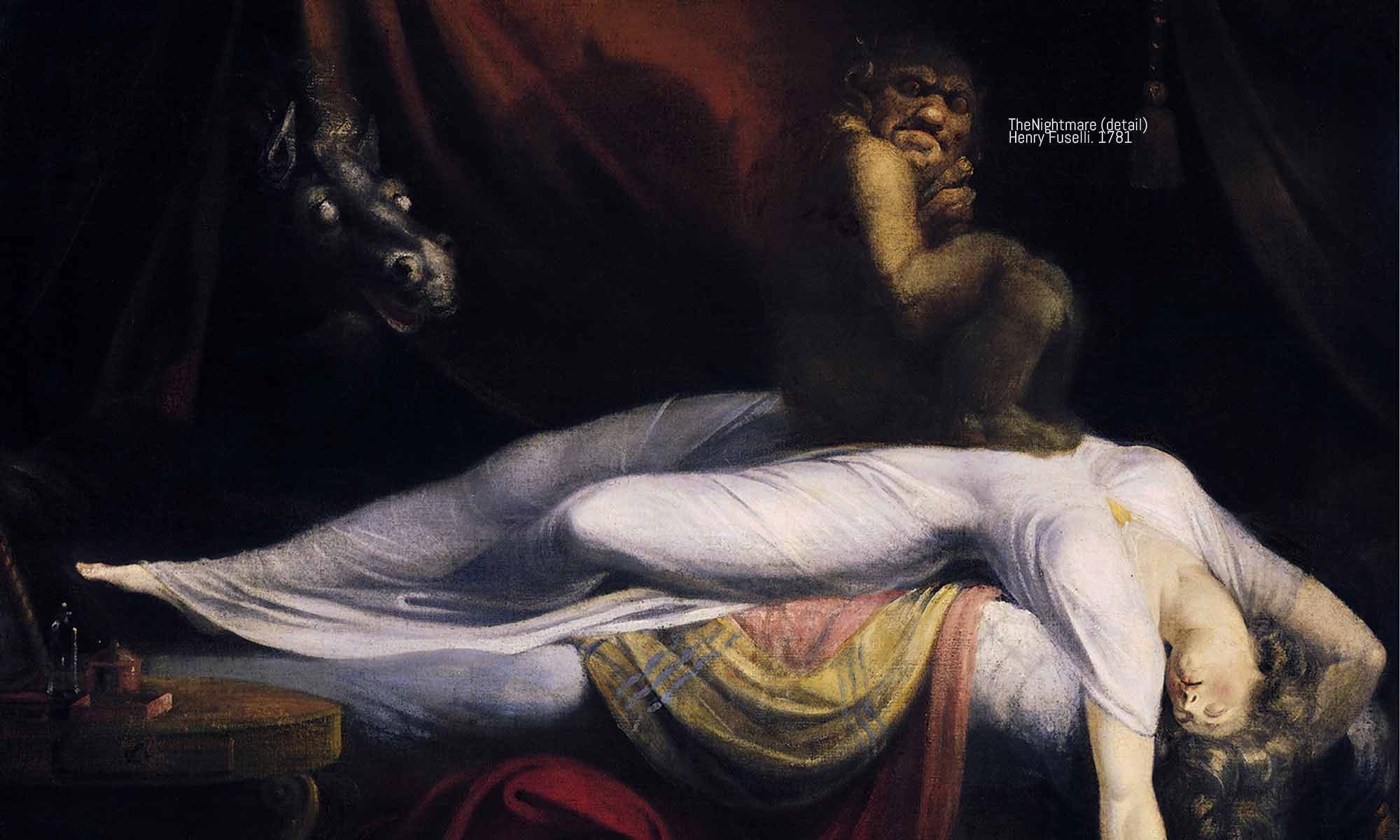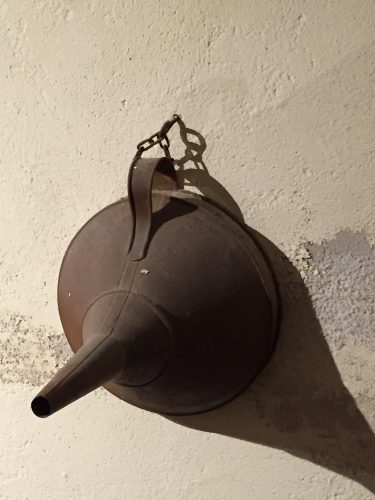 A new collection of dreams about the new US President sheds light on his psychological impact in the minds of those who support him and those who oppose him.
A new collection of dreams about the new US President sheds light on his psychological impact in the minds of those who support him and those who oppose him.
These dreams were gathered via a website I manage, idreamoftrump.net, which has been active since early 2016. A total of 143 came from people living in the U.S., and 56 came from people living in countries outside the U.S. In terms of gender, 124 reports come from females and 75 from males. I asked a question about how the individual would describe his or her political ideology, and 43 said they were progressive, 44 liberal, 50 moderate, 8 libertarian, 37 conservative, and 9 very conservative.
This is certainly not a representative sample of people from the U.S. or the human population, so I want to be cautious in drawing conclusions from the data. This sample represents a self-selected group of people who woke up remembering a dream of Donald Trump, found my site online, and shared the dream with me (for which I am very grateful!). The results of analyzing these dreams can illuminate several possible dimensions of meaning which are interesting and important, though not definitively proven or established using current research methods. What I’m going to lay out is more than mere speculation, but well short of settled knowledge.
 The good news, from a research perspective, is that this set of 199 dreams turns out to be remarkably consistent with the content patterns of average or typical dreams. In my 2016 book Big Dreams I describe the “SDDb baselines,” a set of more than 5,000 dream reports I gathered from normal, healthy people to create a portrait of the baseline frequencies of average dreaming. I analyzed the 199 Trump dreams using the same word search template I used with the SDDb baselines (which includes classes for Perception, Emotion, Cognition, Movement, Characters, Social Interactions, Culture, and Elements), and I found the results match up very closely with the frequencies of the baselines.
The good news, from a research perspective, is that this set of 199 dreams turns out to be remarkably consistent with the content patterns of average or typical dreams. In my 2016 book Big Dreams I describe the “SDDb baselines,” a set of more than 5,000 dream reports I gathered from normal, healthy people to create a portrait of the baseline frequencies of average dreaming. I analyzed the 199 Trump dreams using the same word search template I used with the SDDb baselines (which includes classes for Perception, Emotion, Cognition, Movement, Characters, Social Interactions, Culture, and Elements), and I found the results match up very closely with the frequencies of the baselines.
What this means is that the Trump dreams are not radically different from ordinary dreams. The same general currents that shape regular dreaming also shape the dreams in which Trump appears as a character.
 This also means the few differences I did find are worth special attention. The close parallels between the Trump dreams and the SDDb baselines on so many categories of content casts into sharp relief the areas where the Trump dreams had unusual variations from the baselines.
This also means the few differences I did find are worth special attention. The close parallels between the Trump dreams and the SDDb baselines on so many categories of content casts into sharp relief the areas where the Trump dreams had unusual variations from the baselines.
The Trump dreams had a very high frequency of references to male characters, which makes sense given that the Trump is present in all of them. But these 199 dreams also have an unusually low frequency of references to female characters, which is more striking. Compared to the baselines, the dreams of Trump also have remarkably high frequencies of references to the act of speaking, to the perceptual sense of touch, and to the cultural domain of money and work.
For the males, their dreams of Trump had unusually high friendliness, low physical aggression, and low references to weapons. For the females, their dreams of Trump had unusually high physical aggression and sexuality.
To summarize these findings, it seems that when Trump appears as a character in people’s dreams, he does not disrupt the whole process; people continue dreaming more or less the way they typically do. But he does have a tangible and measurable impact on certain aspects of those dreams. A dream about Donald Trump typically involves fewer women and more talking, touching, and references to money and work. Men seem to become pacified around Trump in their dreams, while women seem to become more instinctually primed.
 I can provide the spreadsheet with the detailed results to anyone who requests it, and I will go into more detail about these and other politically-related dreams at the upcoming conference of the International Association for the Study of Dreams, to be held June 20-24 in Anaheim, California. I am giving a presentation on dreams in relation to current U.S. politics, and the analysis of this set of 199 Trump dreams will be featured in the presentation.
I can provide the spreadsheet with the detailed results to anyone who requests it, and I will go into more detail about these and other politically-related dreams at the upcoming conference of the International Association for the Study of Dreams, to be held June 20-24 in Anaheim, California. I am giving a presentation on dreams in relation to current U.S. politics, and the analysis of this set of 199 Trump dreams will be featured in the presentation.
The dream reports are currently available in the SDDb for further study and exploration. I have selected twenty-three reports to include in this post, all of which came post-election, as a way of illustrating the personal experiences behind the statistical comparisons I’ve been discussing so far. Each report includes the age, gender, country/state of residence, and political ideology of the dreamer, along with their SDDb participant ID codes. The dreamer’s associations to the dream follow the report, responding to my question about what they thought the dream might mean, and whether it altered their view of the new president. I made up the titles with an eye towards highlighting what I think are the most interesting themes.
He Put a Ring on My Finger
A female, 32, from Iowa, moderate – Td107
I dreampt I was in his house, a really large one. There were threats that he was going to be assassinated all around and I was crying. He was acting like everything was okay and he had a lot of security. Everyone was dressed casual, and I think his family was there too. Suddenly the dream shifted and everyone was saying he was dead. I couldn’t stop crying, and as I was about to go he stood in front of me and told me I was worried for nothing, he was smiling and totally confident. This part is weird and embarrassing. …He then proposed to me and put a ring on my finger! I grabbed him and was sobbing into his chest while he was rubbing my back. I have NO idea why I dreampt it lol. That’s what prompted me to search if anyone else has dreams of him. 🙂
Idk, I voted for him..and I think he’s great! It doesn’t change my opinion of him at all, it made me feel a little closer to him perhaps…which is weird to say.
I Could Mess With Trump If I Wanted to
A female, 14, from Louisiana, liberal – Td123
I was is a car, one with black leather material. The car has three rows of seats and Donald Trump and my brother resided in the middle set and I sat in the back row. I sat behind Trump and he reclined is chair to touch my knees. I give him a dirty look and received the same back but he soon put his chair back. Then, not immediately after, almost like some time had past, Trump asked me to get something from the seat next to me that was him and he reclined his chair and I gave his item to him and the very slightest bit of our fingers brushed past each other and I was disgusted so much that I quivered. My brother gave me a dirty look and Trump put his seat back on. I realized that I could mess with Trump if I wanted to and texted my friend and asked “Should I shout I’M GAY!” And my dream ended at that.
Perhaps the dream means how I feel scared about what could happen to my friends that are not all white men.
He Gives Me a Necklace to Wear for Our Wedding
A female, 63, from New York, progressive – Td124
I’m getting married! I am preparing for my upcoming wedding. My fiance, Donald Trump, has given me a necklace to wear for our wedding. The necklace has a large oval moonstone set into a square platinum setting surrounded by diamonds, on a small link platinum chain. I am not sure I want to wear this necklace. I have another necklace given to me by my last partner, John. It is a gorgeous platinum necklace set with baguette (rectangular shape) emeralds, and diamond pave (tiny diamonds). It is a series of ¼” links and has an elaborate clasp as a focal point; it’s more dimensional with the same design. While deciding which necklace I will wear my ex-husband, Peter shows up. We go to the local nursery with a container with two plants in it; we own together. One of the plants has died. The man at the nursery says the problem is the two plants need different environments – one needs sun and lots of water, the other less water, and no bright sunlight.
While writing the dream down, I had a big ah-ha about why my ex-husband and I did not get along. This dream made me take a look at my disowned shadow showing up as Trump. I’m still processing it. The jewelry to me represents some accomplishments in my life which point to speaking up (necklace around throat). Integrating Donald will probably help that too, but at this moment I have a difficult time with admitting I am that too, but dreams don’t lie. LOL!
I Note That He Is Circumcised
A female, 69, from Colorado, liberal – Td125
I’m in a bathtub with Donald Trump. He tells me to wash my hair. Melania sits on the toilet with the cover down and tries to make nice. He’s not being sexual with me. Maybe I’m not attractive enough for him to notice. I tell Melania he’s my father. I know no good will come of this. I note that he is circumcised because I know people will ask. Why won’t he let me take a shower? I need to rinse my hair. There’s not much water. Should I pull the white shower curtain? I decide not to. It’s no use. He cannot win, I think to myself, trying to make it so.
Trump has invaded my private space, yet is not as aggressive or fearful as he seems in waking life . I don’t want him there but he’s more of a bumbler than a threat.
Working Very Closely With Him
A female, 53, from Mississippi, conservative – Td127
It was very good dream.Donald hired me to work very closely with him full time and most of what my job consisted of was entertainment. It seemed like many people were flocking around him at something like a resort/? Donald seemed to be so appreciative of my opinion 24/7. It was a very vivid dream and people were a little jealous of me and/or confused about the situation.
Yes my dream did change my perspective of Donald in a better way. He seems very kind and giving.
A Soft Kiss on the Lips
A male, 67, from Virginia, progressive – Td133
I am a trump supporter.. maybe more didnt want the alternative the night before the election he came to me in a dream and kissed me on the lips…his lips were very soft. i felt very close to him. I’m not overtly attracted to him in a sexual way
it engendered a feeling of paternal trust
I Am His Disgruntled Spouse
A female, 50, from Georgia, liberal – Td141
I dreamt I was in the White House as First Lady and he was my husband. Even in my dream I was disgusted by his presence and felt compelled to do everything in my power to keep him from becoming our President. I was a disgruntled spouse who was complaining about everything he was doing. Every time I looked at him I loathed being with him! We were getting ready to go to a show and he kept trying to convince me it was going to be ok? ?Strangely I had the upper hand and he was pretty much agreeing to everything I said and actually trying to be extra nice to me. Very vivid in my mind-Everything was pale pink like the drapes, and layers underneath were white with hints of old shimmering. Even the furniture was upholstered in sand pink and gold thread, the wood works had gold shimmery accents to it! He wore a black suit, with a white shirt and red tie. I was dressed in a white suit with gold shimmer..
I was just so disturbed by it it mortified me that we were even in the same dream! He seemed absolutely puzzled about his every move, almost apologetic about everything he said and I had a dog that was sleeping in my bed and I remember being very mean and saying I’ll just take the dog with me you can stay here in the White House and be president. It was a room with large glass panels all over and I felt like I had no privacy and then I pushed him out and locked the doors. He said, “at least give me the dog! Please be ready, I’ll see you down stairs.”
I’m His Girlfriend and Melania Is Super Jealous
A female, 26, from Nebraska, libertarian – Td155
I’ve been having basically the same dreams about Donald since before he was even president. It’s always where I’m like his girlfriend lol. Melania is always super jealous of me and everyone don’t get why he chose me. But I’m always super for it! He’s always very nice and treats me like a princess. It isn’t so real and I can like feel him lol there’s so many details I can’t even tell them all. It’s like it’s real life. Always me and him together like in a relationship. Very good dreams
Well. I have always been a fan of trump. Like his number on every fan lol. And his sons wife followed me on Instagram and we’ve talked online about her horse and dogs. And she personally thanked me for going up to vote for him. I love that family
He Accepts Me As I Am
A female, 54, from California, conservative – Td176
I was supposed to be at a formal presentation but, I was dressed in shorts and a tank top. I was standing in front of a beautiful building but, was anxious about going in due to my attire. As I stood there, President Trump comes over like we’ve known each other forever, takes my hand ever so gently and he sort of waves his individual fingers against mine. He then looked right at me and said “Don’t worry about how you are dressed, you have the same right to be here as everyone else.” That’s it. It made me feel good. Accepted.
I have been scared to death about the direction of this beautiful country. Too many agendas will only lead to chaos. I feel like the dream Trump was telling me that things will be OK and that all people eventually will be treated with courtesy and respect.
I’m His Child, and Powerless to Stop His Plans
A female, 49, from West Virginia, liberal – Td180
I was at a cocktail party at a swanky mansion, and Trump walked in, and had a different wife, blonde, and a different child, I guess that was me, although I felt like myself. He wanted u us to go see his property down by the river, so we got in the car and the blonde drive us around till we came upon a big Greek revival type building, sort of looked like mausoleum actually, and he said it was an apartment building he had bought and did I like it? I said yes, it was beautiful, and then several young women came bounding out, wearing bikinis and talking about what they had made for dinner. We almost hit the off kilter gate backing out of the driveway. Then I woke up. Earlier in the dream, I was being chased in my car by one of his security officers, and I sped up to get away and lost control of my car and went down a wooded cliff in the dark and thought I was going to die. I landed safely in a bunch of bushes, at the house that became the other dream.
I felt powerless to stop his plans, like a robot, or a slave. Even acting like I was a relative or a child made me feel annoyed because I am my own person wanting nothing to do with him. I don’t agree with him at all in real life but in my dreams he was like you will do it my way and be impressed or I will chase chase you off a cliff.
A Neighbor in NYC
A male, 50, from New York, progressive – Td158
I was walking down an avenue in Midtown Manhattan and I saw Trump walking alone. He didn’t have any protection or staff flanking him. He was wearing black sweat pants and a sweatshirt and he looked a bit forlorn. As he passed me I said, “Good afternoon, Mr. President.” He didn’t react. I think someone behind me said hello to him as well. I remember thinking why isn’t he wearing his usual suit? In real life, I have seen him in my neighborhood twice before. His daughter lives around the corner from me on 59th and Park and I have seen her frequently over the years since she was a youngster.
The dream did not increase any negative feelings re trump
An Honored Guest in the Great White Plaza
A male, 35, from Colorado, conservative – Td153
There I was with my good friend Eric. We were way up high on some kind of structure and seemed to be boarding a ride or a craft of some kind. Eric was steering the craft at first to show me how to do it. Then it was my turn. I took over the craft and started to bring it down to the ground below. It seemed like some kind of helicopter but very small as it only fit me and Eric side by side. When we landed I jumped off and Eric stayed on taking the craft back up. The moment I turn around I notice that I am now in an all white setting. The walls were white with columns leading to curved arches and they stretched around an enormous square plaza that had what looked like a white woven carpet for a floor. I then noticed that I was being guided around this area by Donald Trump, who seemed to be treating me as an honored guest. He showed me around and introduced me to people. We seemed to be talking candidly but I cannot recall what about. After we left the great white plaza Donald guided me through what seemed to be a naval vessel. We kept going up until we reached a compartment that appeared to be multi-functional. Donald left me at a table with close to a dozen people, all who had communication devices in their ears. They were testing these devices and one of the devices had a distorted sound. Everyone there seemed to know me as they looked to me to figure out what was wrong with the device. I spoke into the microphone and made a few comments and then woke up.
I am not sure what the dream means, but after waking from it I certainly felts interested in the meaning. The feeling I had while in the dream was excitement and admiration as it seemed that I was being treated with great honor and respect in what seemed like a setting full of very important people.
Something 14.5 Inches Exactly
A female, 29, from US, moderate – Td188
I wasn’t going to share this but here it goes… I was at some political/social event and happened to meet President Trump. He said that he wanted to show me something that was 14.5 inches exactly. He then began pulling down his pants and said, “See, I told you it’s huge.” In reality it (his penis) was not. This is making me want to throw up typing this and I do not know why I had this dream. In reality I would never want to see that! LOL However, I specifically remember seeing the number 14.5, so that could mean something. I don’t recall ever seeing anything that connects to the number 14.5 in relation to Trump or in my life.
I think this dream is hinting at exaggeration of some kind. Maybe making something out to be bigger than it actually is or expecting too much of a certain situation. I’m not really sure what triggered me to have this dream.
I Cannot Bring Myself to Say the Words
A female, 55, from California, moderate – Td194
In my dream, my 7/8th grade students are to be heading out on a field trip. I am standing in the parking lot waiting for the drivers to file out. Donald Trump has his driver-side door open standing between it and the car gesticulating to the bystanders. I want him to get in the car and drive my students to the destination. However, I cannot bring myself to say the words, “President Trump” in order to get his attention and tell him to get in the car and drive it. Instead, I call out, “The car needs to be moving; we need to get to our destination.” Nothing happens. Trump keeps talking and waving his hands and is standing wedged between the open black car door. I try again. I yell out, “Get in the car and get it moving; the students need to get to their field trip.” He doesn’t stop talking. I turn to someone standing next to me and I ask them, “Could you walk over to him and tell him he needs to drive the car – I can’t get his attention, and I just can’t bear to call out the name ‘President Trump.'” I woke up and my dream was so real I am still bothered by it.
As far as what triggered it, well I have been watching lots of youtube videos regarding Trump, so that could have triggered it.
A Game of Him Trying to “Win” Me Over
A female, 22, from Georgia, moderate – Td195
He was coming to an event and he was driving through a body of water. The water would part and people would walk through then a wave would come and then it would part and his limo drove through. We were in a huge colosseum listening to him talk. Then there was an after party and he came up to me wanting my number- I am not a Trump fan and I expressed that. It then turned into a game of him trying to “win” me over. My old boyfriend was there, he is a Trump supporter, and Trump told him he wasn’t interested in talking. This went on the entire night until I left the party.
I have no idea what triggered the dream. I did not run into my ex and I try to avoid Trump news.
Married to the President with a Baby Carrot Penis
A female, 54, from Florida, moderate – Td197
I dreamt I was married to Donald Trump and he wore pajamas that look like his regular clothes and his penis was a baby carrot. He also sent me to Victoria’s Secret to buy my inauguration dress with a black American Express card that said president of the United States of America. I told him Victoria secret didn’t carry plus size clothes and he said they do now. I went to Victoria’s Secret and they do not carry plus size clothes and they said they would get them I had my own American Express card that said Mrs. president of the United States of America and paid for peoples dinner at the mall where the Victoria’s Secret’s was with my black American Express card. I also dreamt of the inauguration in the White House inside was kind of tacky and dirty. The funniest part was Barbara Bush was sleeping in a cot in the hallway and blue pajamas with her pearls on her neck. And as I walk down the hallway all the other first ladies are sleeping on cots in the hallway
I’m pretty sure that I manifested trumps hatred of fat women and the tackiness of his wife’s clothing. I’m also pretty sure that the baby carrot penis had to do with eating some before bed and having a diverticulitis attack in real life. It’s also the first time I have proof that o dream in color! The carrot was orange
From participants living in countries outside the US:
Everyone Is Blindly Praising Him
A male, 17, from Denmark – Td140
I dreamt that I was in a high school class and donald trump was also attending this class, it was an older version of him and he had a lot more wrinkles and his skin was more orange, he seemed like he was disgusted of everyone in that class and started criticizing us and telling us what to do but indeed everyone was blind about it and started praising him and saying the famous sentence: make America great again. AWKWARD
I think it really reflects the reality of things, in a more concrete way and that a lot of people are blind about the bad deeds of Donald trump.
Trapped at School by a Gunman
A female, 18, from Canada, liberal – Td184
I was watching a movie in what seemed like an elementary school classroom. It was brightly lit, and someone was handing out fruit leather to us in our desks. When I left the classroom, I found myself in a stairwell as all the doors mechanically snapped shut. I somehow knew that there was a man with a gun in the building, and that I was trapped in that particular flight of stairs. I also knew that Melania Trump was a few flights above me, also locked in. Somehow I sensed that the gunman was Trump, but he didn’t know that Melania was trapped in the stairwell along with the rest of us. I should mention that the stairwells were sparsely populated, with only about 3 people locked in each flight of stairs. I woke up before anything more could happen.
I am firmly liberal (democratic to Americans), and staunchly oppose Trump’s policies. Since he has been inaugurated I have felt extremely uneasy, and it grows with each day. It’s possible that this dream was an expression of that anxiety, or perhaps it foreshadows the destruction of the school system under Trump? Haha not sure.
Does He Have Manipulative Superpowers?
A male, 31, from Malta, progressive – Td172
Donald Trump was my Flatmate, which in my dream was more of a background information, because the dream setting was some private party of his somewhere else. Everything was super luxurious, sunny, nice snacks, and he was really nice to me, showing me around and being attentive. In my dream I knew that I actually am against Donald Trump, but for some reason meeting him in person I actually liked him. I was wondering if he had manipulative superpowers of some sort, because it didn’t make any sense that I got along with him so well. I met his family, all were very nice too. I kept my resentments against them hidden and took part in conversations. I had the feeling I saw the human sides in them, everyone thinking they are actually doing the right thing, being good people, but getting it all wrong because they live in this super rich bubble, disconnected from the real world. Later more people joined the party, even an old friend of mine. We got a bit drunk and at one point I told him that Trump is actually sharing a flat with me at the moment and we both laughed at the absurdity of it.
I was surprised to see how quickly I somehow changed side, just by being invited to a party of his, apparently lulled in by the luxury of it all (I actually don’t even like luxury very much). There was this nagging feeling in the back of my head that it is wrong to be nice to them, but it felt extremely difficult to take a position in that setting (or even remember what my position really was).
Sleeping With Him
Female, 15, from Ireland, moderate – Td131
I had to sleep with Donald trump. There were no beds left to sleep in so i had to sleep with Donald.
Maybe because i thought about donald trump a lot and I’m still okay with Donald.
He Was Very Sweet
A female, 21, from the Philippines, moderate – Td112
It was a very long dream, and Donald Trump was only a part of it. I remember he was courting me, he was very sweet to me, and wanted to have an affair with me. I knew we had so much age gap, and that I am not suited to be his wife, so I just laughed but I was flattered that he was being that way to me. I dont want to have an affair with him though. Lol
I dont know what it means, and I didnt even think of him the night before. But that dream made me ponder that he has a soft but impulsive side to him.
Trapped in a Marriage With a Narcissist
A female, 26, from New Zealand, liberal – Td181
I was married to Trump and we were at some kind of social gathering. I was sitting next to an old school friend, talking to her, when I heard a verbal attack outside and saw that a group of African people were fighting with Trump. They appeared to be insulted by what he was saying and then they left and Trump came back inside. He sat down next to me and I asked him whether it had been taken out of context or had he said something insulting? He answered that it had been insulting but that he didn’t care. I was mortified that I could be married to someone like this and I angrily expressed my feelings, and then I said something like “Donnie, Sean, whatever your name is!” (Sean is the name of my partner – who is nothing like Trump!) – I then left and spoke to my old school friend and described how trapped I felt. It then changed to another aspect of this gathering… Melania Trump was there and she was ordering me drinks, and then she was standing on the bar table and dancing. I remember eating lots of cake.
Thoughts of narcissism may have triggered it – my mother in law is a narcissist (has tried to ruin my relationship with her son) and I’m reading a book titled ‘the narcissist next door’ published in 2014, it talks about Trump in its beginning pages (before he became president!) and describing him as a kind of poster boy narcissist (which I think he is) and he is using fear to divide and conquer. It’s very sad.
His Head Looks Like Crumbly Rubber With a Bad Toupee
A male, 63, from Thailand, moderate – Td151
I’m on Trump Island. It’s supposed to be a big luxury celebrity deal, a kind of trip to fantasy island, but it’s just a rough, flat, windswept space surrounded by gray sea with some decrepit buildings on it. People in long overcoats are moving around with no sense of direction, and there’s a feeling of something going on, something important but unclear. Trump is in a kind of lounger next to me, and he’s really anxious and upset that it isn’t going well. He’s on the verge of tears. His head looks like it’s made of crumbly rubber, with a bad toupee, but I know it’s really him. He’s started clinging to me, and crying. I’m embarrassed to be there, but I try to comfort him. Later I’m crying out “Donny! Donny!” because they’re asking me for a ticket I don’t have.
The dream means I’m seeing too damn much Trump on the internet. I’ve never dreamt about a world leader before. I still hate the fucker. Slightly more, if anything, for wasting my valuable dream time.
Note: this essay first appeared in the Huffington Post on April 26, 2017.

 A new collection of dreams about the new US President sheds light on his psychological impact in the minds of those who support him and those who oppose him.
A new collection of dreams about the new US President sheds light on his psychological impact in the minds of those who support him and those who oppose him. The good news, from a research perspective, is that this set of 199 dreams turns out to be remarkably consistent with the content patterns of average or typical dreams. In my 2016 book
The good news, from a research perspective, is that this set of 199 dreams turns out to be remarkably consistent with the content patterns of average or typical dreams. In my 2016 book This also means the few differences I did find are worth special attention. The close parallels between the Trump dreams and the SDDb baselines on so many categories of content casts into sharp relief the areas where the Trump dreams had unusual variations from the baselines.
This also means the few differences I did find are worth special attention. The close parallels between the Trump dreams and the SDDb baselines on so many categories of content casts into sharp relief the areas where the Trump dreams had unusual variations from the baselines. I can provide the spreadsheet with the detailed results to anyone who requests it, and I will go into more detail about these and other politically-related dreams at the upcoming conference of the
I can provide the spreadsheet with the detailed results to anyone who requests it, and I will go into more detail about these and other politically-related dreams at the upcoming conference of the 













 In August of 1991 I joined a group of dream researchers from the U.S. and Western Europe on a journey to Golitsyno, a conference center just outside Moscow in the former Soviet Union, where we planned to meet several Soviet researchers for a gathering organized by Jungian analyst Robert Bosnak. Just hours after our plane landed in Moscow on August 19, the airport was suddenly shut down by the Red Army; a
In August of 1991 I joined a group of dream researchers from the U.S. and Western Europe on a journey to Golitsyno, a conference center just outside Moscow in the former Soviet Union, where we planned to meet several Soviet researchers for a gathering organized by Jungian analyst Robert Bosnak. Just hours after our plane landed in Moscow on August 19, the airport was suddenly shut down by the Red Army; a 


